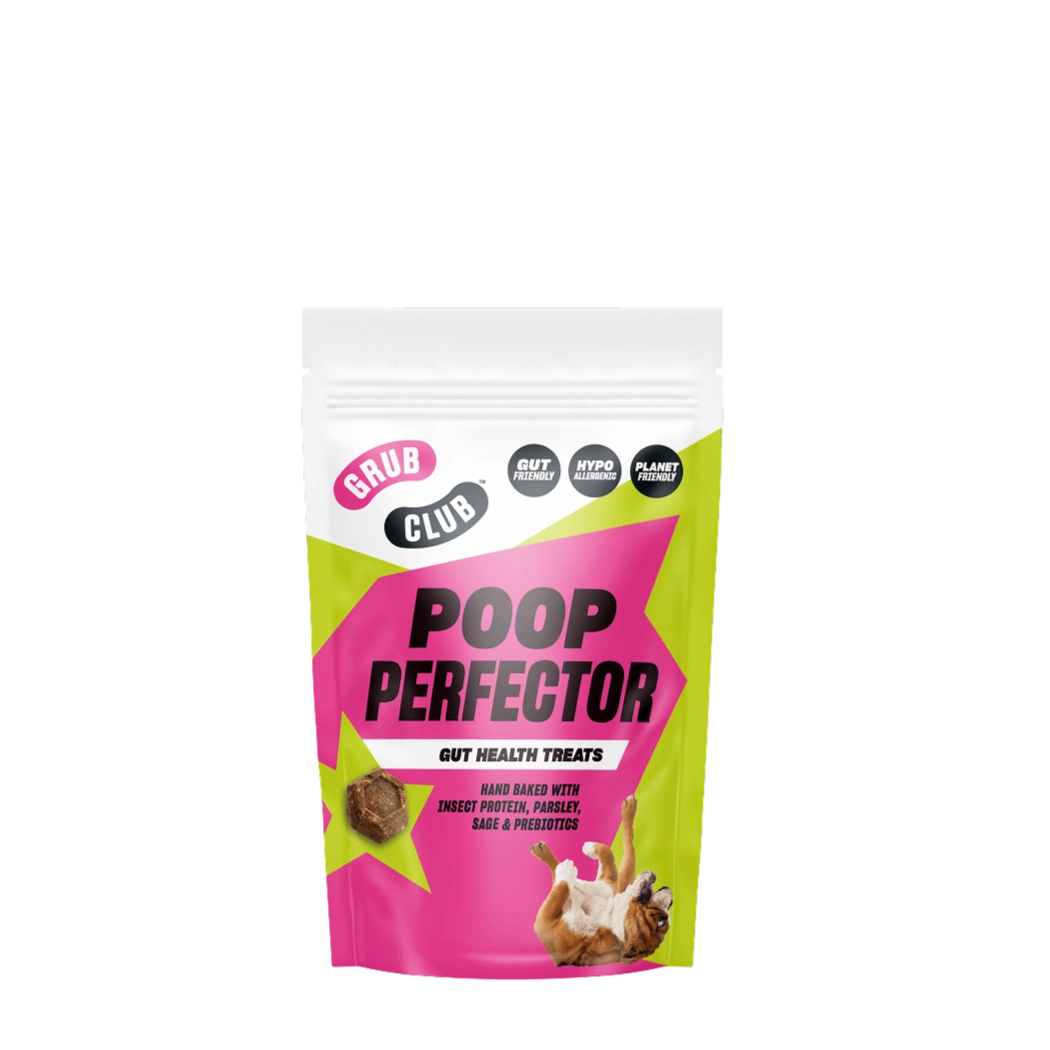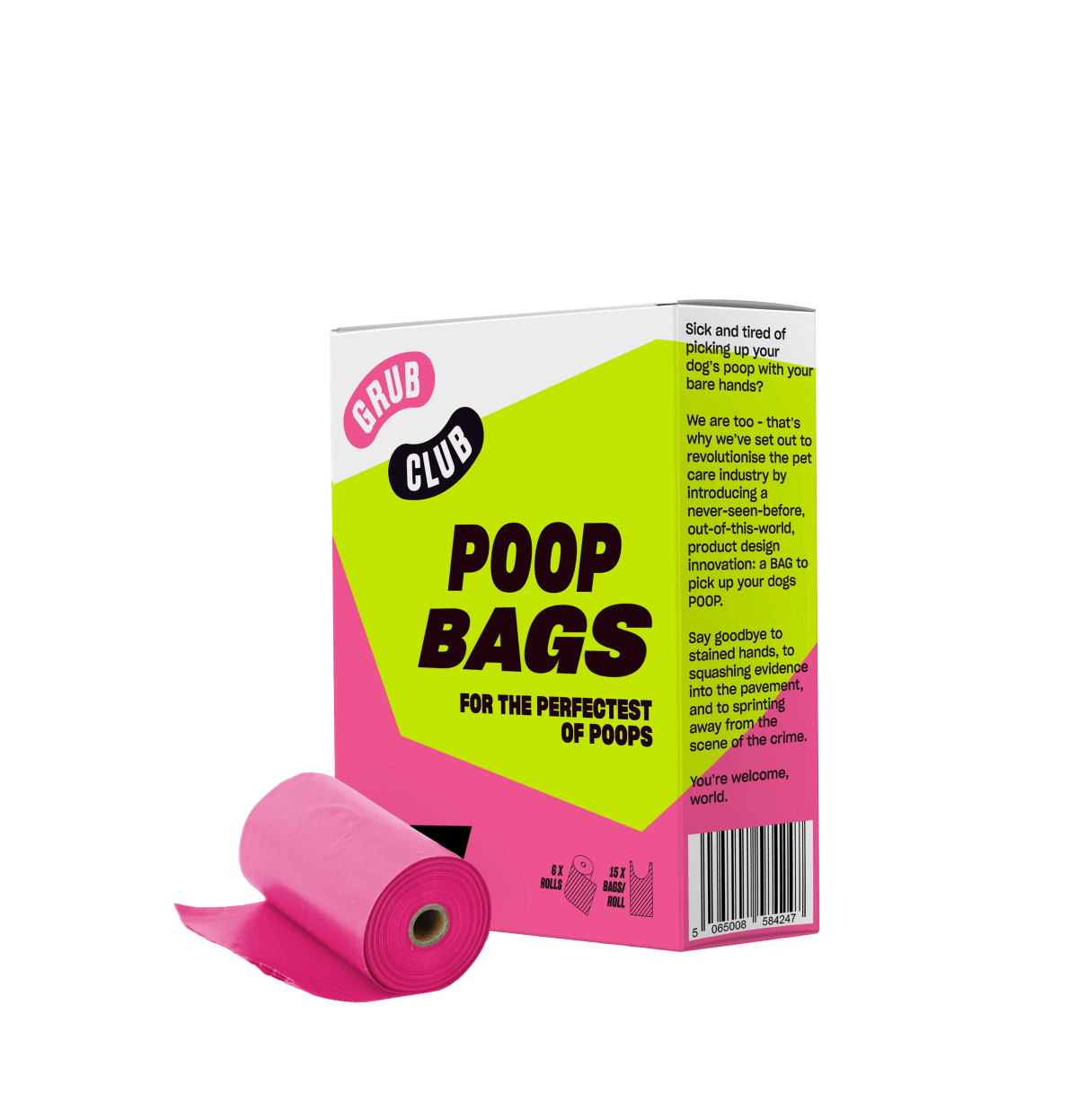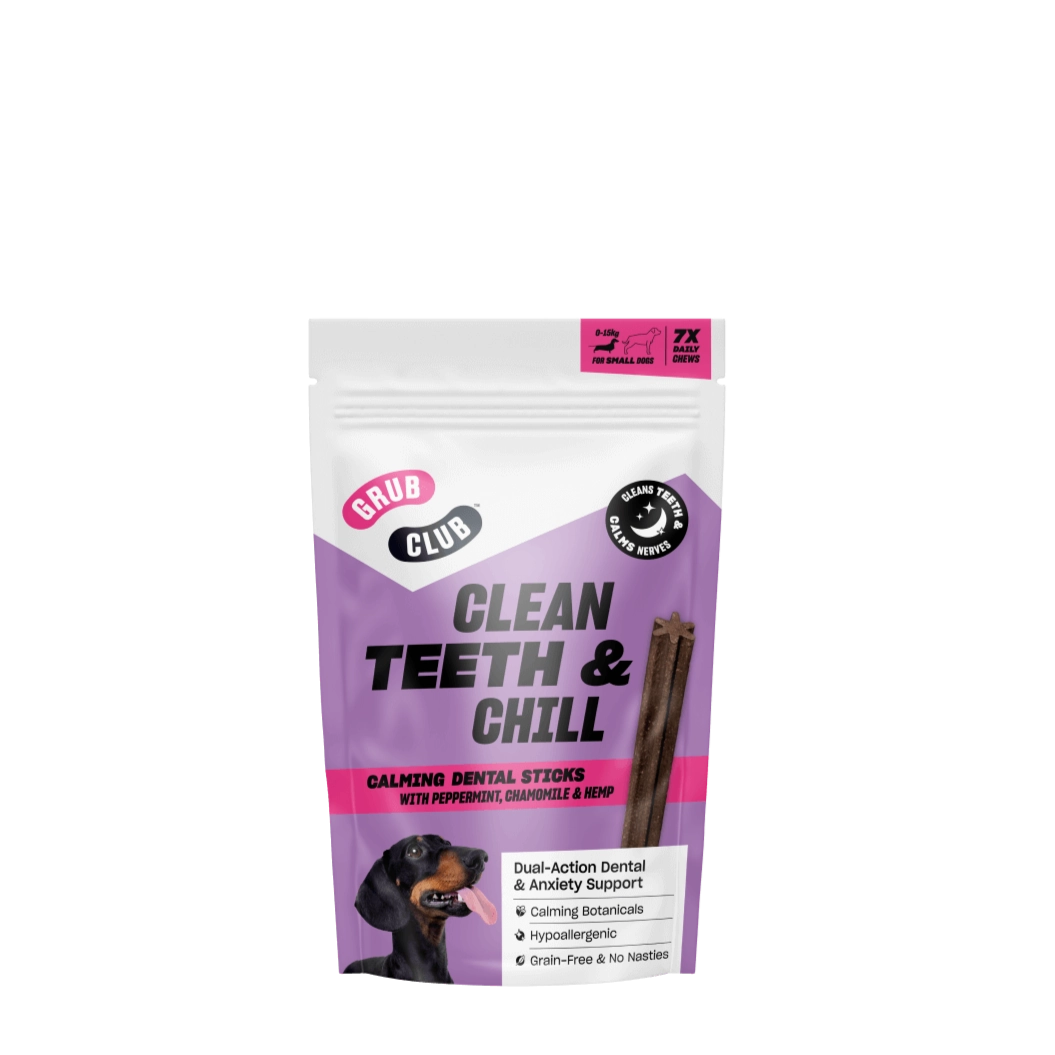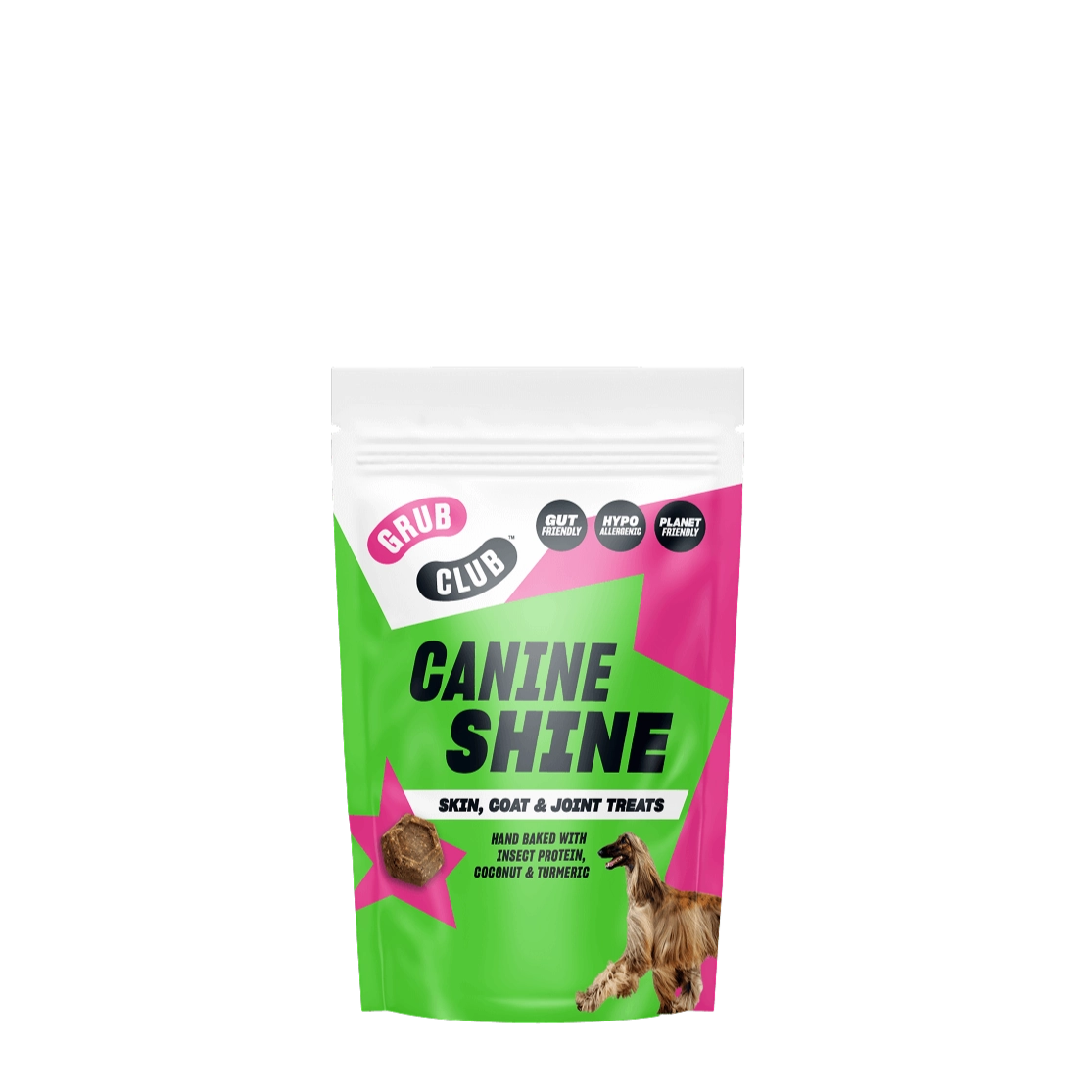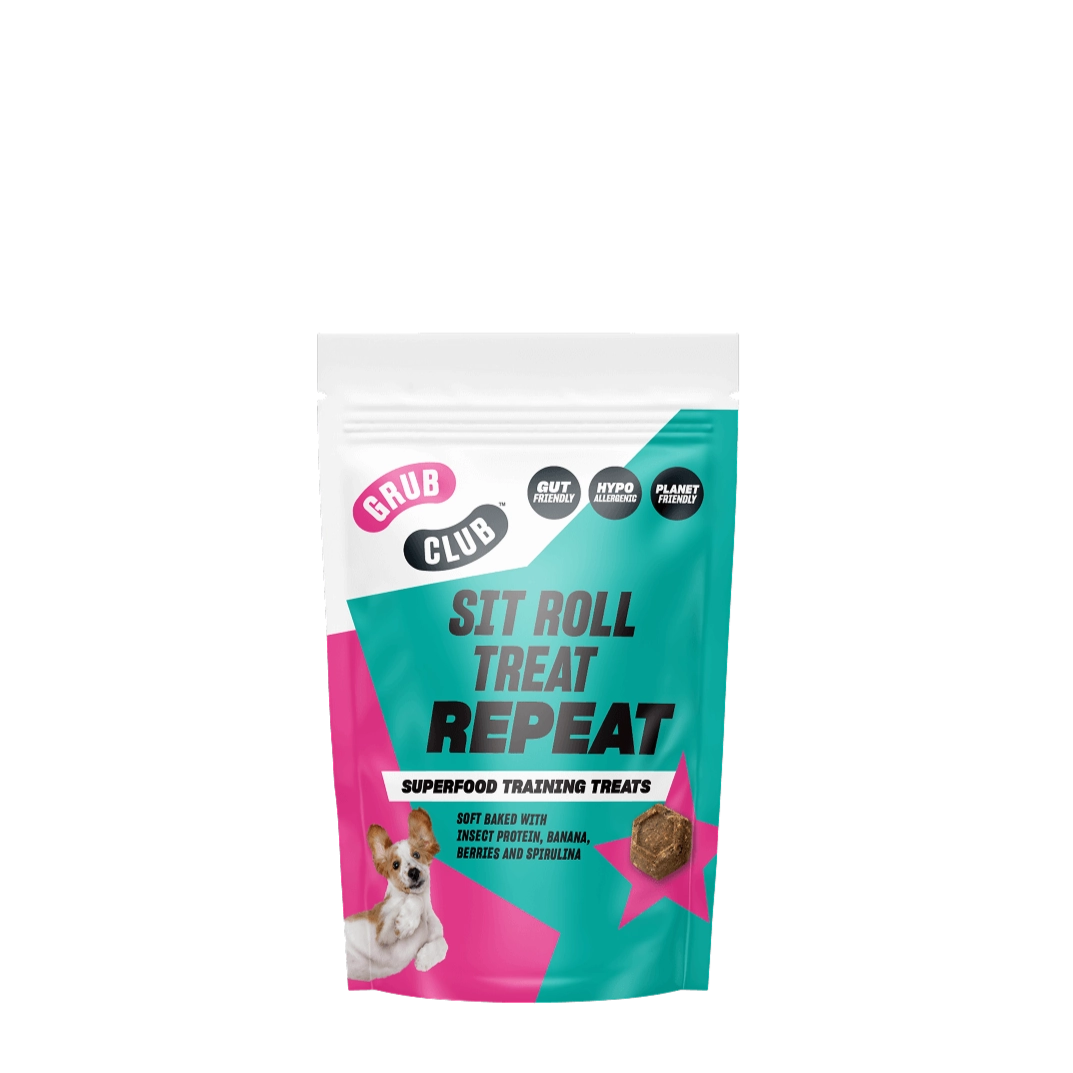POOP PERFECTOR
Prebiotic Gut-Health Treats
1 Pack
FREE UK Delivery on orders above £49.
You have £0.00 in your cart, spend £49.00 more and get free shipping.
1 Pack
60 Scoops
72 Bags
1 Pack (7 Sticks)
1 Pack
1 Pack
Or continue without a name
Checkout
Just like us, your pooch probably enjoys the occasional scratch (especially if someone else is doing the scratching), but excessive scratching could indicate that something is wrong. Itchy skin is a very common problem in dogs and may have various causes, some minor and some more serious. If your dog is scratching a lot more than usual, their skin could be dry and itchy – this is pretty uncomfortable and would probably make anyone, including your dog, pretty miserable, and there’s nothing worse than a sad dog.
Often, when we see an itchy dog we jump to the conclusion that it may have fleas. Well, not necessarily. There are many possible reasons for a dog scratching more than usual. If your pooch has an itch that just won’t go away, you’ll want to get to the bottom of it pronto.
Skin conditions are often complicated and take time to fully diagnose. Allergies can typically be caused by three things, which can be diagnosed by your vet:
- Environmental or atopic allergies in dogs (sensitivity to things inhaled by your dog, such as pollen, dust mites or mould spores)
- Food allergies
- Fleas (allergies to the flea saliva)
There have been many advances in both detection and treatment of allergies in dogs. This means that treatment can be more effective nowadays.
Common symptoms of dog allergies include:
- Itching
- Red, inflamed skin
- Foot chewing
- Eventual fur loss (a result from constant scratching)
- Thickening of the skin (these are secondary symptoms which develop eventually) as well as recurrent ear infections or itchy ears.
Some dogs are sensitive to certain ingredients in food – such as wheat, soya and meat-based proteins, which include chicken and beef. More than 90% of dogs are lactose intolerant by the time they reach 12 months old. If you suspect your dog has a food allergy, consult your vet about possible causes and potentially look at switching to a hypoallergenic diet – in steps GRUB CLUB. This is a big one for us at Grub Club and one which we provide a great solution to with our hypoallergenic insect protein.
This is another common cause of itching in dogs. While some bites cause minor irritation, others can cause a severe allergic reaction. You’ll probably notice redness and swelling around a bite if you think your dog has been bitten or stung. Always take your dog to the vet if they vomit or have difficulty breathing after a bite or sting.
You may be able to spot fleas on your dog’s skin when you part their fur, or brush with a metal flea comb. Small reddish-black specks of flea dirt are another sure sign that your dog has fleas. Dogs allergic to flea saliva commonly bite at their tail and scratch frequently. They may also experience hair loss as a result. If your dog does have fleas, it’s very important to treat both your pet and your home, as flea eggs can live in carpets and soft furnishings without a host animal for up to 100 days. The sneaky little buggers.
A dog with dry skin may scratch, lick or bite themselves – sometimes to the point of causing injury. Other symptoms can include hair loss or skin that appears dry, flaky, scaly or irritated.

Dehydration – if you feed your dog dry food, this automatically absorbs lots of moisture from the body and may lead to your dog drinking more water. As always, make sure clean and fresh drinking water is always available to quench that canine thirst!
Allergies – a common reason for dry skin on dogs. These can be seasonal and can cause sensitivity in the skin.
Poor diet – a low-quality diet can mean that your dog is not receiving the essential nutrients that make for a healthy skin and a shiny coat. Our Canine Shine treats provide a superfood-packed boost of ingredients that help to promote soft and supple skin and a coat so shiny that it might solicit spontaneous applause from passers-by.
Weather – cold or windy weather – especially when combined with the dryness caused by indoor heating – can take its toll on your dog’s skin.
Washing and bathing – washing or bathing your dog too frequently will often lead to dry skin. We know you want your pooch smelling good 24/7 but hold off on those daily baths especially if the old hound is lookin’ a little flakey.
Defective moisture barrier – the skin has a moisture barrier that helps retain moisture in the skin. Sometimes this becomes compromised and can cause dry skin. Every dog is different. Some have better barriers than others.
When it comes to managing your dog's itchy skin, what you feed them can play a significant role in their overall health and comfort. The right diet can help support their skin barrier, reduce inflammation, and promote a healthy coat. Here's what to look for when choosing the best dog food for itchy skin:
High-Quality Proteins: Look for dog foods that use high-quality, easily digestible proteins such as fish, lamb, or insect protein. These proteins are less likely to cause food allergies, which can contribute to itchy skin.
Omega Fatty Acids: Foods rich in omega-3 and omega-6 fatty acids, like fish oil, flaxseed, and chia seeds, help reduce inflammation and promote healthy, hydrated skin. These nutrients can also soothe irritation and improve the texture of your dog’s coat.
Hypoallergenic Ingredients: If food allergies are suspected, consider switching to hypoallergenic dog food made with novel proteins (such as venison or duck) and limited ingredients to reduce potential allergens.
High Fibre Content: A diet rich in fibre supports healthy digestion, which can help prevent skin flare-ups caused by food sensitivities. Look for dog foods that include sweet potatoes, pumpkin, or other high-fibre ingredients.
Antioxidants and Vitamins: Dog foods with added antioxidants, like vitamins E and C, can help protect the skin from oxidative stress, support the immune system, and prevent skin dryness and irritation.
Grub Club’s All-Day Buffet: For a solution that's specifically designed to support skin health, Grub Club's All-Day Buffet is a great option. Packed with nutrients like omega-3s and hypoallergenic insect protein, it’s formulated to help soothe and support dogs with sensitive skin. Plus, it's easy on the stomach and promotes overall health.
By choosing the right food, you can help alleviate your dog's itchy skin and ensure they get the nutrients they need for a healthy, shiny coat.
Plenty of water
Diet – giving your dog a high-quality diet is essential to support their skin health.
Grooming – try not to groom your dog more than once a week
Protection from cold weather – limit the amount of time your dog spends out in cold weather.
Obviously, we all want to do the best for our pet pooches. Have a gander at our Canine Shine treats. These goodies are certain to help your dog’s skin and help prevent it from going dry and itchy. They’re hypoallergenic and are made with insect protein, coconut, turmeric and apple. Fortified with vitamins, antioxidants and nutrients, as well as being rich in omega 3s to help make your dog’s skin stay soft and coat shiny.

Check Out Our Other Related Products:
